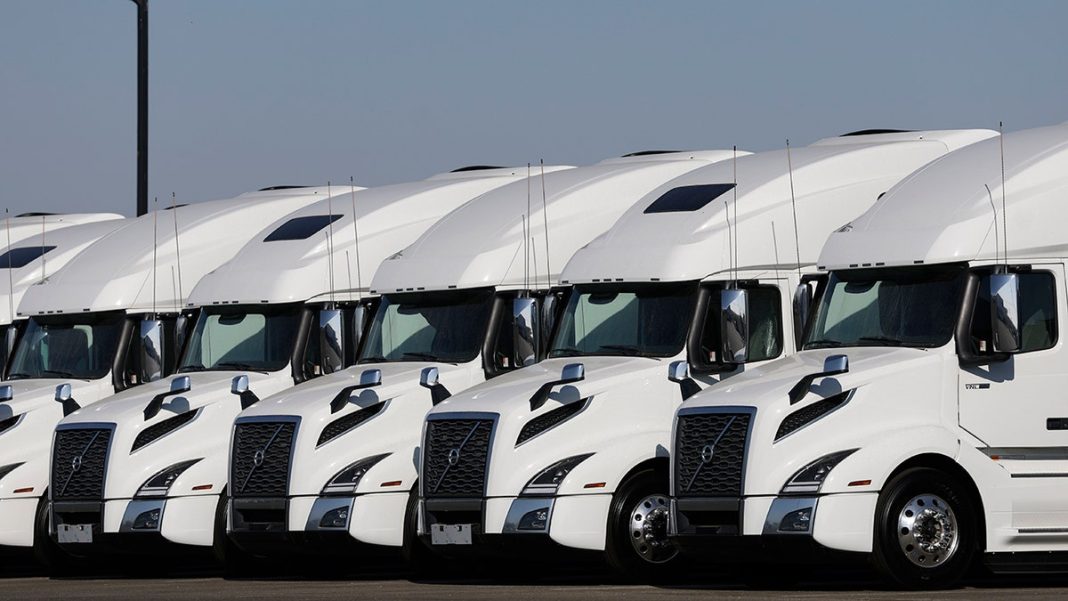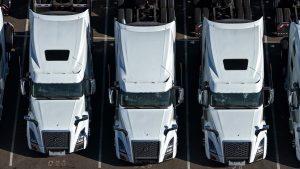Waabi and Volvo Unveil Next-Generation Self-Driving Truck
A new chapter in trucking has begun as Waabi and Volvo reveal their integrated autonomous truck solution, marking a major step toward commercial deployment of self-driving freight.
Key Takeaways
- Waabi Driver integrated with Volvo VNL Autonomous truck platform
- Six redundant safety systems enable driverless operations
- NVIDIA DRIVE AGX Thor powers the computing platform
- Targeting Level 4 autonomy for defined conditions
Building for Scale and Safety
In early 2025, Waabi and Volvo Autonomous Solutions announced their long-term partnership to develop and deploy autonomous trucks. Volvo’s New River Valley plant in Virginia is producing the VNL Autonomous with six critical redundant systems including dual braking, steering, communication, computing, power, energy storage and motion control.
Waabi provides the Waabi Driver, an end-to-end AI model that learns from experience and adapts to new conditions. The company uses its advanced simulator, Waabi World, to expose the AI to millions of realistic driving situations before road deployment.
“The future of autonomous trucking depends on technology that is safe, scalable, and built for customer needs,” said Raquel Urtasun, Founder and CEO of Waabi. “Together with Volvo and NVIDIA, we’re leading autonomous freight into a safer and more efficient era.”
Addressing Freight Industry Challenges
The U.S. freight market faces growing demand and a shortage of qualified drivers. AI-powered autonomous trucks offer a promising solution to keep goods moving efficiently.
Nils Jaeger, President of Volvo Autonomous Solutions, emphasized the partnership’s broader impact: “Autonomy has the potential to address some of the biggest challenges in the transport industry, including safety, efficiency, and capacity.”
The collaboration leverages NVIDIA’s computing platform, with Rishi Dhall, Vice President of Automotive at NVIDIA, stating: “Self-driving is one of the first frontiers in which we will see physical AI become a reality. Level 4 autonomy in trucking is happening now.”
Overcoming Implementation Challenges
Despite progress, driverless freight faces significant challenges. Safety remains the primary concern as trucks navigate unpredictable weather, road debris, and human drivers. Regulators continue developing certification frameworks for nationwide deployment.
The automation shift raises economic questions about the millions of trucking jobs across the United States. Labor groups and officials are calling for retraining programs to help workers transition to automation-support roles.
Data privacy, cybersecurity, and public perception also influence adoption speed. Building trust requires transparency, safety trials, and proven performance on highways.
Road to Commercial Deployment
Volvo and Waabi have completed integration of the Waabi Driver with the Volvo VNL Autonomous, describing this as a key step toward Level 4 autonomous operation. This means the truck will drive itself without human intervention under defined conditions.
The collaboration builds on Volvo Group Venture Capital’s 2023 investment in Waabi and participation in Waabi’s $200 million Series B funding round in 2024.
Shahrukh Kazmi, Chief Product Officer at Volvo Autonomous Solutions, noted: “We are excited to integrate Waabi’s cutting-edge system into our autonomous truck and jointly develop a safe, efficient, and scalable transport solution.”
Consumer Impact
For consumers who depend on deliveries or shop online, driverless freight could soon shape how products reach homes. These AI-powered trucks can operate longer hours than human drivers, potentially reducing shipping delays and transportation costs.
Automation could also improve highway safety by reducing fatigue-related crashes, making travel smoother for all road users.
This collaboration demonstrates how artificial intelligence is transitioning from theory to production, fundamentally changing how goods move across America.






